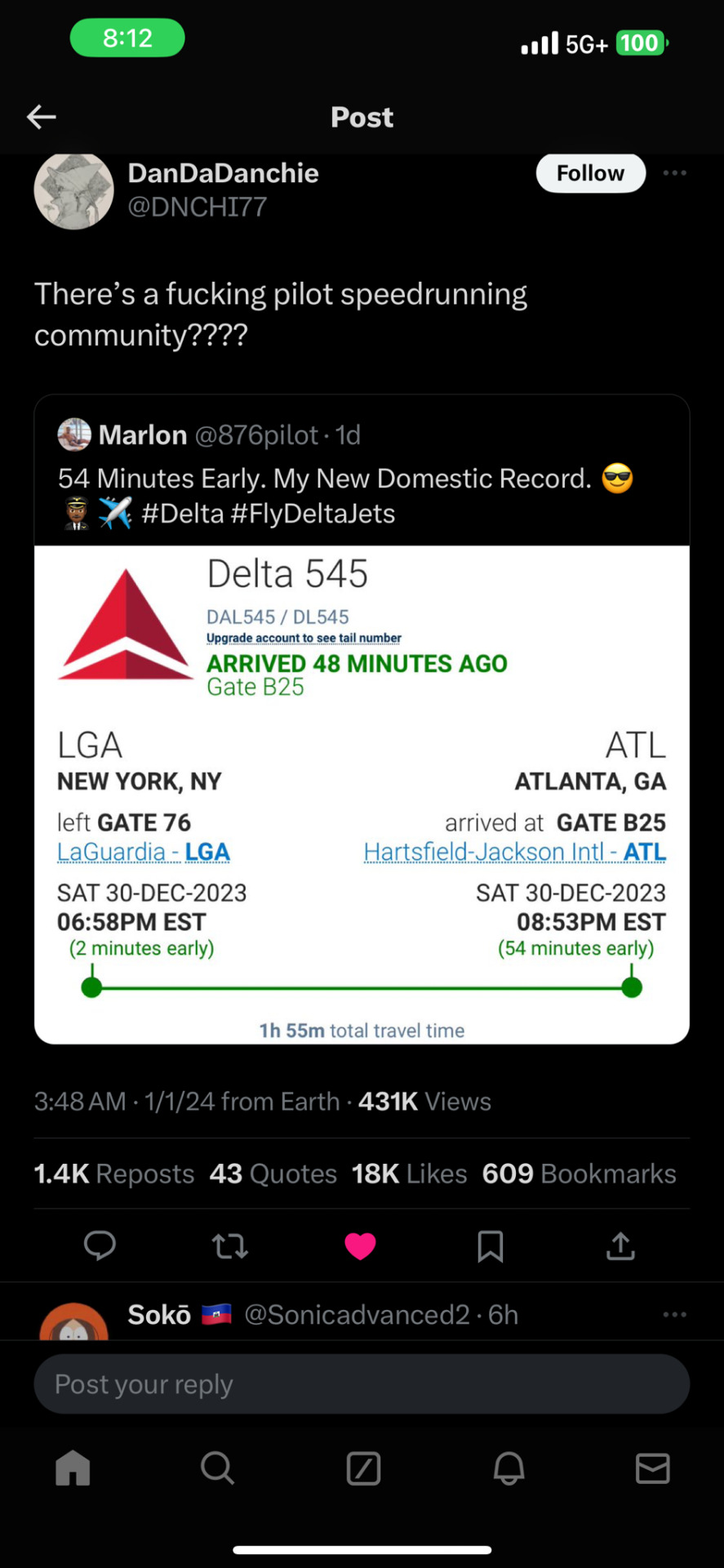Text
Take the memory, leave the shell! Watch what happens when we return seashells to the beach & marine hermit crabs!
Seashells are so important to beaches for a whole host of reasons.
🐚Over-shelling can affect hermit crabs because it reduces the availability of suitable shells for them to inhabit. Hermit crabs rely on empty shells of other creatures for protection and shelter. When there are too few shells available, hermit crabs may be forced to inhabit inadequate shells & pollution as homes, which can hinder their growth and make them more vulnerable to predators and environmental stressors. This can ultimately impact their survival and reproductive success.
🐚Shells provide homes or attachment surfaces for algae, sea grass, sponges, coral and a host of other microorganisms.
🐚Animals such as decorator crabs and octopus use shells as camouflage and many fish use shells as hiding places to avoid predators.
🐚Shells help to stabilize beaches and anchor seagrass.
🐚Shells are used by shorebirds to build nests.
🐚When shells break down, they provide nutrients for the organisms living in the sand or for those that build their own shells. (Shells are a major source of calcium.) I’m a firm believer in when we know better, we do better. I once shelled, and then when I learned all of this, I returned all shells that were not sprayed with a clear varnish to the beach & watched the marine hermit crabs go wild changing shells that were so needed!
#hermit crabs#marine hermit crabs#seashells#seashell#beach combing#beach day#video#TikTok#sustainable#sustainability#wildlife#marine life#animal conservation
2K notes
·
View notes
Text
tried to google search for that post that's like.. something about squids and it goes "the squirterrrrrrrrr" and believe it or not that did not show me the thing i was looking for
62K notes
·
View notes
Text
Anyone who reblogs this post will have their user written on a poster saying "We Stand With Palestine" that I hope to put up somewhere in the village I live in, or the town that the village is next to.
#free palestine#free gaza#gaza#palestine#freedom for palestine#freedom for gaza#ceasefire for palestine#ceasefire for gaza#not sustainability
20K notes
·
View notes
Text
11/30/23: KOSA is an anti-LGBTQIA+ censorship bill. It is essential you call THIS week. Tell them you are specifically against KOSA and especially against hotlining the bill.
Call the Capitol Switchboard at (202) 224-3121 and ask to be connected to the Senator of your choice.
Here is one that will send your reps a fax: https://resist.bot/
#the internet#kosa#censorship#resist#us based#us politics#us law#news stories#news articles#link#button down email
43K notes
·
View notes
Text
23K notes
·
View notes
Text
#video#TikTok#abortion#abortion rights#pro choice#us politics#vote blue#fuck republicans#death mention tw#suicide mention tw
38K notes
·
View notes
Text
It’s an open secret in fashion. Unsold inventory goes to the incinerator; excess handbags are slashed so they can’t be resold; perfectly usable products are sent to the landfill to avoid discounts and flash sales. The European Union wants to put an end to these unsustainable practices. On Monday, [December 4, 2023], it banned the destruction of unsold textiles and footwear.
“It is time to end the model of ‘take, make, dispose’ that is so harmful to our planet, our health and our economy,” MEP Alessandra Moretti said in a statement. “Banning the destruction of unsold textiles and footwear will contribute to a shift in the way fast fashion manufacturers produce their goods.”
This comes as part of a broader push to tighten sustainable fashion legislation, with new policies around ecodesign, greenwashing and textile waste phasing in over the next few years. The ban on destroying unsold goods will be among the longer lead times: large businesses have two years to comply, and SMEs have been granted up to six years. It’s not yet clear on whether the ban applies to companies headquartered in the EU, or any that operate there, as well as how this ban might impact regions outside of Europe.
For many, this is a welcome decision that indirectly tackles the controversial topics of overproduction and degrowth. Policymakers may not be directly telling brands to produce less, or placing limits on how many units they can make each year, but they are penalising those overproducing, which is a step in the right direction, says Eco-Age sustainability consultant Philippa Grogan. “This has been a dirty secret of the fashion industry for so long. The ban won’t end overproduction on its own, but hopefully it will compel brands to be better organised, more responsible and less greedy.”
Clarifications to come
There are some kinks to iron out, says Scott Lipinski, CEO of Fashion Council Germany and the European Fashion Alliance (EFA). The EFA is calling on the EU to clarify what it means by both “unsold goods” and “destruction”. Unsold goods, to the EFA, mean they are fit for consumption or sale (excluding counterfeits, samples or prototypes)...
The question of what happens to these unsold goods if they are not destroyed is yet to be answered. “Will they be shipped around the world? Will they be reused as deadstock or shredded and downcycled? Will outlet stores have an abundance of stock to sell?” asks Grogan.
Large companies will also have to disclose how many unsold consumer products they discard each year and why, a rule the EU is hoping will curb overproduction and destruction...
Could this shift supply chains?
For Dio Kurazawa, founder of sustainable fashion consultancy The Bear Scouts, this is an opportunity for brands to increase supply chain agility and wean themselves off the wholesale model so many rely on. “This is the time to get behind innovations like pre-order and on-demand manufacturing,” he says. “It’s a chance for brands to play with AI to understand the future of forecasting. Technology can help brands be more intentional with what they make, so they have less unsold goods in the first place.”
Grogan is equally optimistic about what this could mean for sustainable fashion in general. “It’s great to see that this is more ambitious than the EU’s original proposal and that it specifically calls out textiles. It demonstrates a willingness from policymakers to create a more robust system,” she says. “Banning the destruction of unsold goods might make brands rethink their production models and possibly better forecast their collections.”
One of the outstanding questions is over enforcement. Time and again, brands have used the lack of supply chain transparency in fashion as an excuse for bad behaviour. Part of the challenge with the EU’s new ban will be proving that brands are destroying unsold goods, not to mention how they’re doing it and to what extent, says Kurazawa. “Someone obviously knows what is happening and where, but will the EU?”"
-via British Vogue, December 7, 2023
#British vogue#fashion#slow fashion#style#european union#eu#eu news#eu politics#sustainability#upcycle#reuse#sustainable#news articles#news stories
10K notes
·
View notes
Text

#link#links#tax the rich#news stories#news articles#marketwatch#propublica#Twitter#i’m not calling it x#no source#us based#us politics#us law#irs
26K notes
·
View notes
Text
New York lawmakers proposed three new bills last week that would make it difficult for wage theft violators to conduct business in the state.
The legislation would bolster the power of state agencies to crack down on wage theft by stripping violators of their liquor licenses or business licenses, as well as issuing stop-work orders against them.
The legislation was prompted by reports of rampant wage theft against New York workers, including two investigations published by Documented and ProPublica. The stories revealed that more than 127,000 New Yorkers have been victims of wage theft during a recent five-year period, but that the New York State Department of Labor was unable to recover $79 million in back wages owed to the workers.
The stories were based on an analysis of two databases of wage theft violations obtained from the U.S. and New York Labor departments. The databases provided previously unreported details on how much money had been stolen from workers and also shed light on which businesses had committed wage theft.
“We knew from our conversations with labor and from our constituent service caseload that wage theft is a chronic problem,” said Sen. Jessica Ramos, a Democrat who sponsored the legislation. “We did not have the data to understand the scale of the issue in New York state until the ProPublica and Documented series came out last year. Having this reporting as a tool set us up to put this package together and focused our attention on” the capacity of the Department of Labor.
The legislation — dubbed the “wage theft deterrence package” by lawmakers — includes three bills, which are co-sponsored in the State Assembly by Assembly members Kenny Burgos, Harvey Epstein and Linda Rosenthal.
#news#us news#us based#us law#wage theft#link#pro publica#news articles#news stories#vote#labor rights#workers rights
4K notes
·
View notes
Text
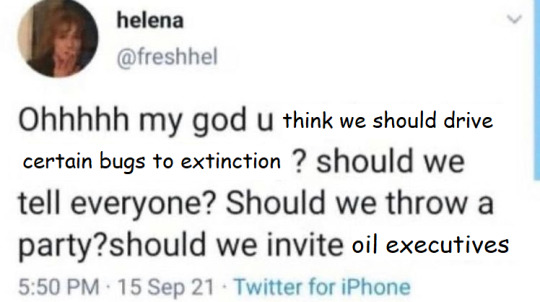
#naturalist#nature#ecology#zoology#biology#insect#insects#bug#bugs tw#insects tw#sustainable#sustainability#environment
30K notes
·
View notes
Text
In much better and happier news Bison after decades of hard work and conservation efforts from indigenous organizations have finally been released back on our lands after 150 years.
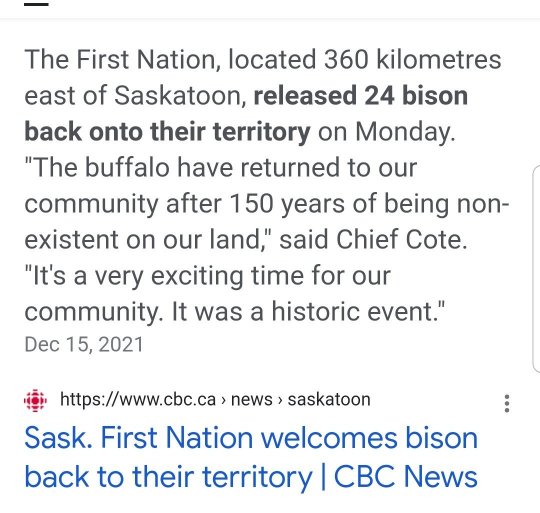

I saw this video live and cried my eyes out. This is so important. Despite it all we survived. We're still here and the possibility to heal the land and ourselves is always there even if it will take time.
Edit: I'm very happy that people love this post but my other less happy educational posts are also just as important
#huffington post#cbs news#wgrz#San Antonio express news#the Texas tribune#pbs newshour#the nature conservancy#mongabay environmental news#cbc#no link#link#links#buffalo#indigenous#sustainability#sustainable#news stories#news articles#animal conservation
78K notes
·
View notes
Text
As of now, Florida and Kansas have passed bills that align with KOSA.
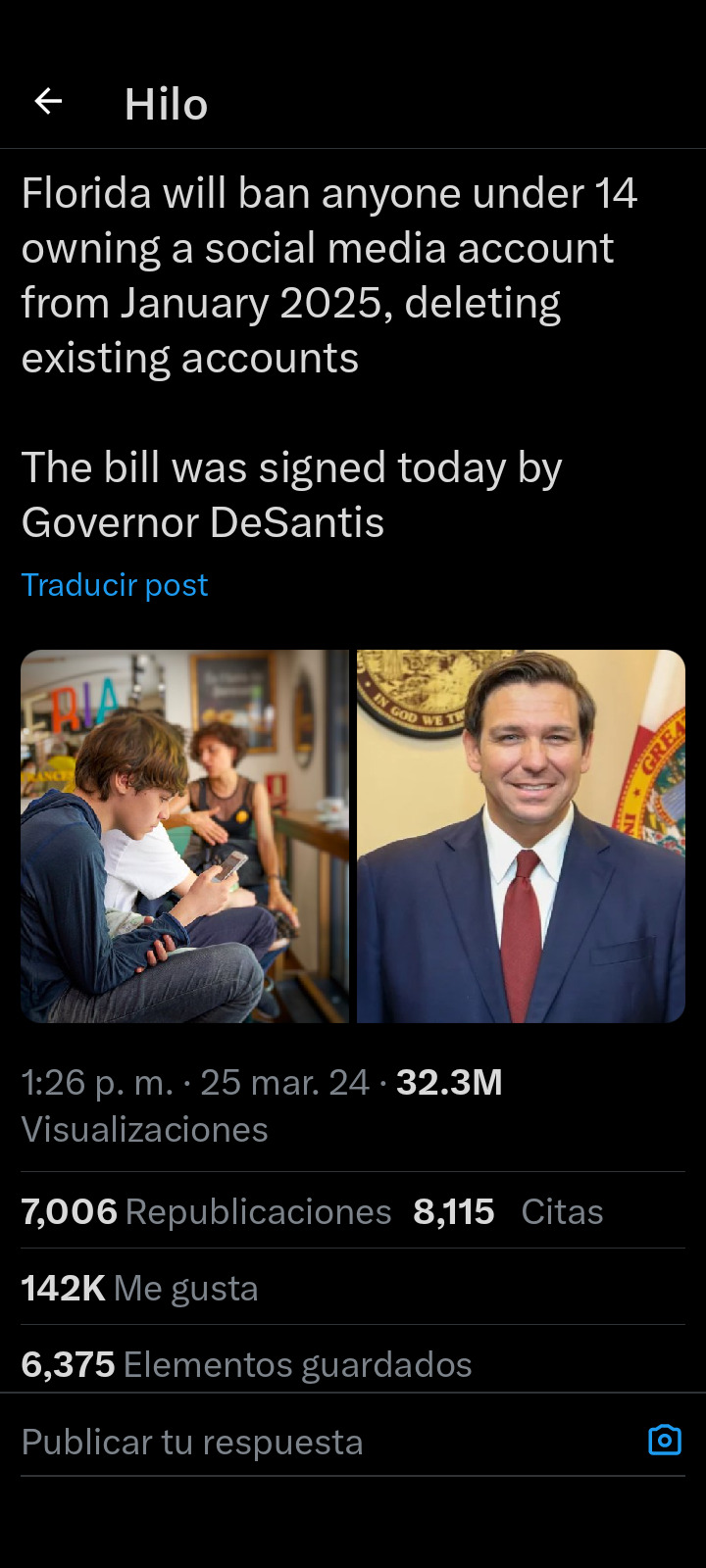

So many people have held back on speaking out against KOSA or signing petitions because "it probably won't pass." But we have proof that it very well can and will.
So what can we do right now?
The same thing we've been doing: bring awareness and protest.
Here are a few websites you can visit to sign petitions:
https://www.badinternetbills.com/
https://www.stopkosa.com/
https://www.eff.org/deeplinks/2024/02/dont-fall-latest-changes-dangerous-kids-online-safety-act
You can also call your state reps. This post explains how you can do that.
Good luck, everyone! Don't give up yet.
#fuck kosa#stop kosa#kosa bill#kids online safety act#kids online safety bill#stop internet censorship#bad internet bills#kosa#important#not sustainability#us based#us politics#us law
26K notes
·
View notes
Text
reblog this if your blog is a safe space on april fools and won’t have any jumpers, screamers, or anything scary or anxiety inducing
233K notes
·
View notes
Text

54K notes
·
View notes
Text



Source
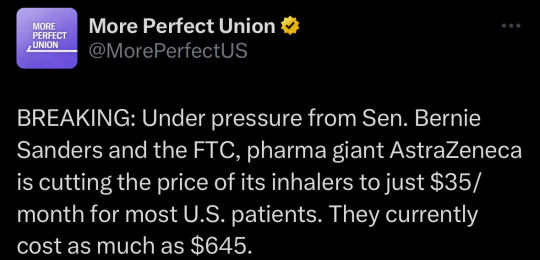

Source
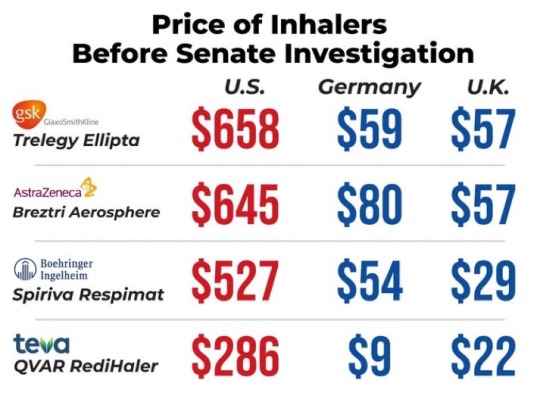
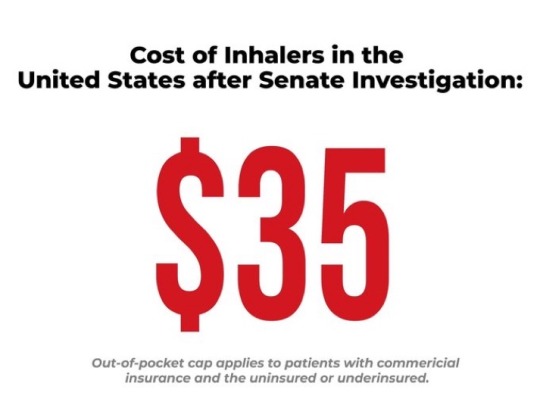
More of this from our public officials
#us based#us politics#us law#link#Reuters#Twitter#i’m not calling it x#bernie sanders#good news#politics#government#health#health care#capitalism#not sustainability
4K notes
·
View notes

